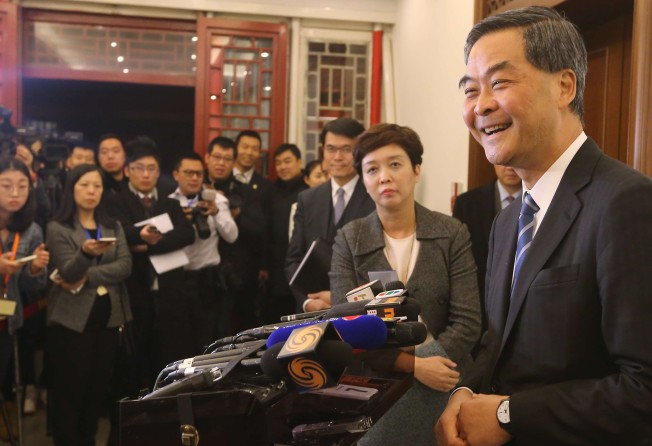Reconciliation key to good governance
The appointment of lawmakers – even from a party critical of Hong Kong’s leader – to the Executive Council is a step in the right direction

The appointment of two pro-government lawmakers to the Executive Council may not necessarily bring about any breakthroughs in governance. But with the legislature becoming increasingly divided, the recruitment of Tommy Cheung Yu-yan and Martin Liao Cheung-kong can at least help the chief executive consolidate the support base, which, hopefully, can strengthen cooperation between the two branches of government. It is not unusual for the city’s leader to recruit cabinet members from a new legislature to enhance governance. But with the chief executive race just four months away, the move by Leung Chun-ying initially raised eyebrows, with some observers saying the incumbent leader was paving the way for re-election. That notion should now be laid to rest following Leung’s decision not to seek another term.
That said, effective governance remains a key issue in his remaining months of rule. One way is to build better ties with Legco via appointments to the cabinet. The choice of Liao and Cheung appears to be sensible. Liao is the convenor of the caucus of pro-Beijing lawmakers, while Cheung chairs the Liberal Party, a vocal critic of Leung’s leadership.
The appointments have increased the number of legislators in Exco to three, including Jeffrey Lam Kin-fung, of the Business and Professionals Alliance. The Democratic Alliance for Betterment and Progress of Hong Kong, the largest voting bloc in Legco, also has a former lawmaker – Ip Kwok-him – in the cabinet. New People’ s Party chief Regina Ip Lau Suk-yee resigned earlier to run in the chief executive race.
Such quasi governance alliances stem from the city’s odd political system in which the administration has no votes in Legco. The problems are further entrenched by a law that bans party affiliation for the city’s leader and thus denies him – or soon perhaps her – any solid backing in Legco. Previous leaders have resorted to such coalitions for stable governance, though they are no guarantee of support in legislative and funding proposals put forward by the government. Cooperation is pretty much based on a case-by-case approach.
As long as the restraints remain, governance will be difficult. Our polarised political atmosphere makes reconciliation and cooperation all the more important. Leung has said that government appointments would not be confined to the like-minded. This resonates with Beijing’s wish for the government to unite different sectors for stability and development.